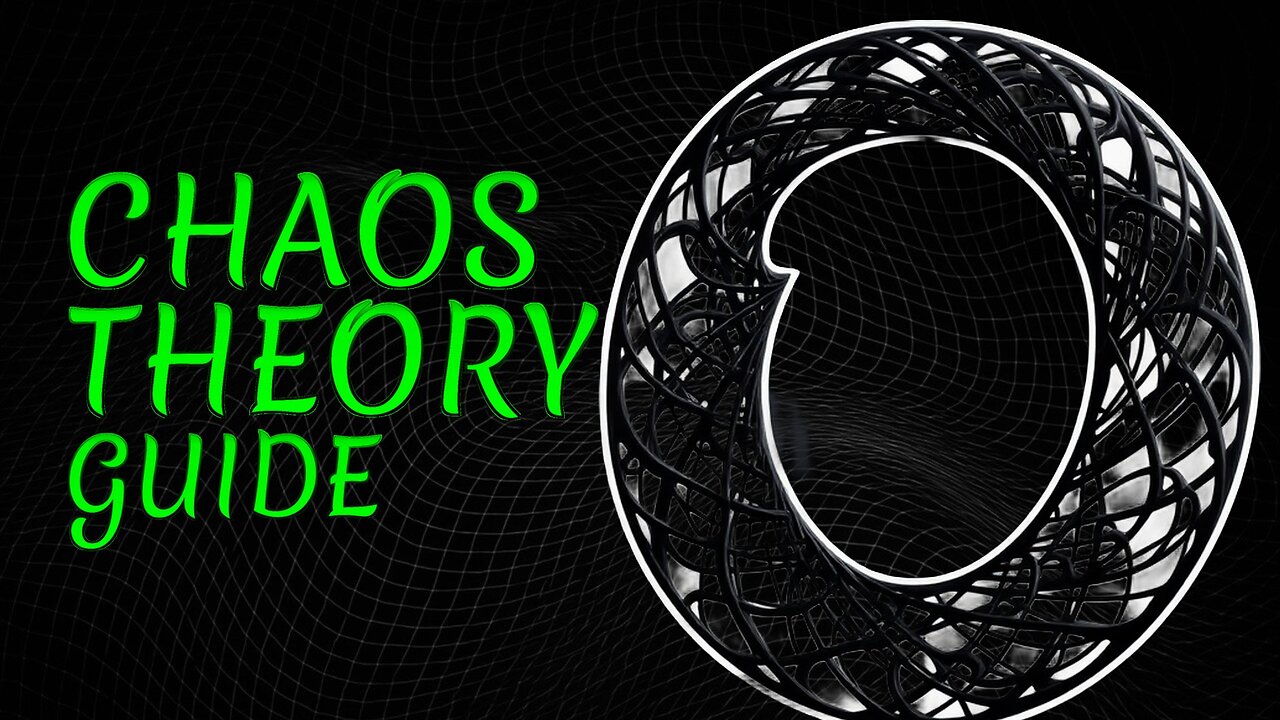Premium Only Content

A simple guide to chaos theory | Understanding Psychology
Title: A simple guide to chaos theory | Understanding Psychology
Description:
Chaos theory, a fascinating interdisciplinary field, explores the seemingly random and unpredictable behaviors of complex systems. Originating from mathematical models, chaos theory has found significant applications in various domains, including psychology. At its core, chaos theory deals with systems that are highly sensitive to initial conditions, meaning that slight variations in the starting point can lead to vastly different outcomes. This characteristic, often referred to as the "butterfly effect," has profound implications for understanding human behavior and mental processes.
In psychology, chaos theory offers a fresh perspective on understanding the intricate dynamics of the human mind. Traditional psychological models often rely on linear cause-and-effect relationships, which can oversimplify the complexity of human behavior. Chaos theory, on the other hand, acknowledges the nonlinear and often unpredictable nature of mental states and behavioral patterns. This shift in perspective allows psychologists to better understand phenomena such as mood swings, emotional instability, and even the development of mental disorders.
One key concept in chaos theory is the idea of "attractors," which represent stable states or patterns within a chaotic system. In the context of psychology, attractors can be thought of as recurring thought patterns, behaviors, or emotional states that a person tends to revert to. For example, someone with a history of depression may have a tendency to return to a depressed state even after periods of stability, illustrating the concept of an emotional attractor.
Another important aspect of chaos theory in psychology is the notion of "bifurcations," or points at which a system can diverge into different paths. These bifurcations can be influenced by various factors, such as life events, social interactions, or internal cognitive processes. Understanding these critical points can help psychologists predict and intervene in potential mental health crises before they escalate.
Furthermore, chaos theory emphasizes the importance of holistic approaches in psychology. Rather than isolating individual factors, chaos theory encourages the consideration of the entire system, including the interactions between different elements. This holistic view can lead to more comprehensive and effective treatments for mental health issues, as it takes into account the complex interplay of biological, psychological, and social factors.
In conclusion, chaos theory provides a powerful framework for understanding the intricate and often unpredictable nature of human psychology. By embracing the principles of nonlinearity, sensitivity to initial conditions, and holistic analysis, psychologists can gain deeper insights into the dynamics of mental health and behavior. This understanding can pave the way for more effective interventions and treatments, ultimately improving the well-being of individuals struggling with psychological challenges.
Tags:
chaos theory, understanding psychology, butterfly effect, nonlinear dynamics, mental health, emotional attractors, bifurcations, holistic psychology, mood swings, psychological models
-
 LIVE
LIVE
Wendy Bell Radio
5 hours agoThings Will Get Worse Before They Get Better
7,741 watching -
 1:08:17
1:08:17
Chad Prather
8 hours agoHow to Get Along With People You Don’t Even Like (Most of the Time)
49.3K14 -
 1:45:29
1:45:29
MTNTOUGH Podcast w/ Dustin Diefenderfer
8 hours agoTaya + Colton Kyle: Can American Marriages Survive 2025? | MTNPOD #140
95 -
 1:12:23
1:12:23
The Bold Lib
16 hours agoSay Something Beyond W/MikeMac: JOKER - Ep.12
50 -
 LIVE
LIVE
LFA TV
16 hours agoLIVE & BREAKING NEWS! | MONDAY 11/3/25
3,195 watching -
 1:30:13
1:30:13
Game On!
13 hours ago $6.64 earnedChiefs Dynasty OVER, New Longest FG RECORD, and Patriots Are Winning The Super Bowl!
18.1K2 -
 4:02:17
4:02:17
The Bubba Army
3 days agoIS AMERICA OVER TRUMP? - Bubba the Love Sponge® Show | 11/03/25
81K27 -
 48:57
48:57
Man in America
18 hours agoThe Sinister Reason They Put Fluoride in Everything w/ Larry Oberheu
362K102 -
 1:06:56
1:06:56
Sarah Westall
16 hours agoAstrological Predictions, Epstein & Charlie Kirk w/ Kim Iversen
99.8K72 -
 2:06:49
2:06:49
vivafrei
1 day agoEp. 289: Arctic Frost, Boasberg Impeachment, SNAP Funding, Trump - China, Tylenol Sued & MORE!
287K218